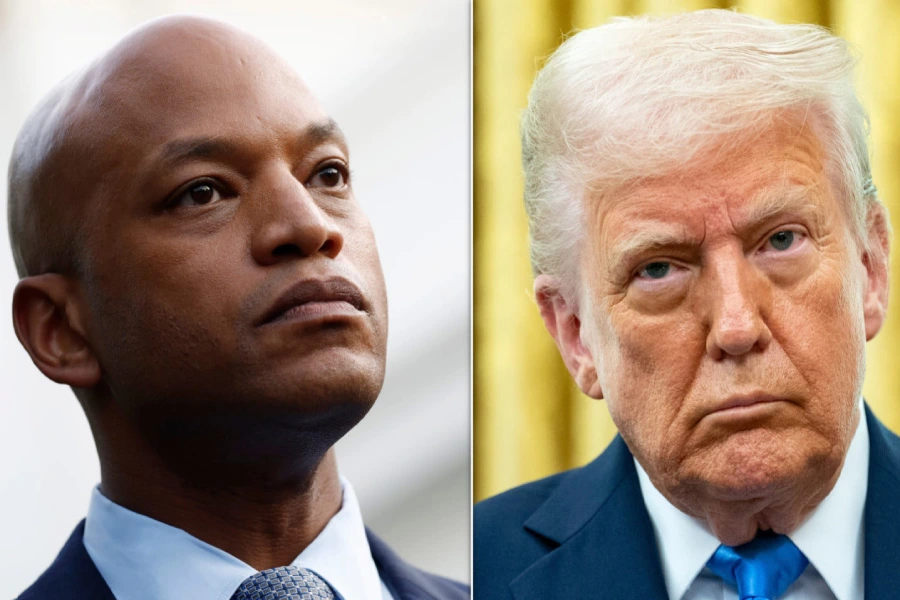Political tensions have escalated as Maryland Governor Wes Moore confronts President Donald Trump over federal involvement in Baltimore’s public safety. This high-profile dispute highlights the delicate balance between federal authority and state governance, with Wes Moore defending state sovereignty against what he views as federal overreach.
The conflict started when Wes Moore invited Trump to visit Baltimore and engage in dialogue on public safety. Instead of accepting, Trump threatened to deploy National Guard forces, raising constitutional and legal concerns.
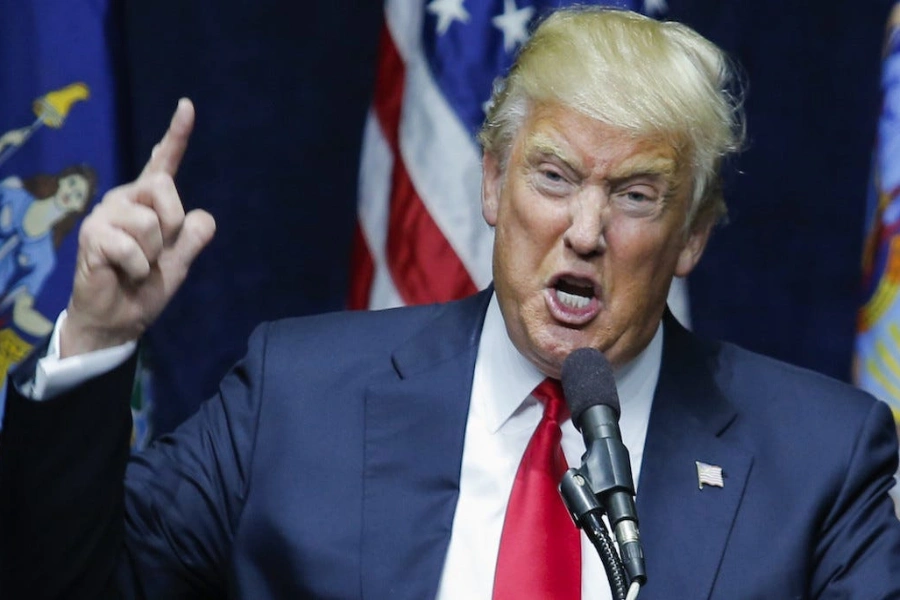
Wes Moore’s Constitutional Stand Against Federal Intervention
Wes Moore emphasizes that Trump’s threats conflict with fundamental principles of state governance. He criticized National Guard deployment in Washington D.C., calling it a violation of the Tenth Amendment, which reserves powers not explicitly granted to the federal government to the states.
This highlights a core principle of American federalism: balancing federal authority with state rights. Wes Moore insists that local authorities are better equipped to address Baltimore’s crime challenges without undue federal interference.
Legal Framework for National Guard Deployment
| Authority Type | Legal Basis | Governor Control | Federal Control |
|---|---|---|---|
| State Active Duty | State Law | Full | None |
| Title 32 (Federal Funding) | Federal Law | Operational | Administrative |
| Title 10 (Federal Service) | Federal Law | None | Full |
| Insurrection Act | Federal Law | Limited | Full |
Wes Moore’s opposition demonstrates the tension between these frameworks and potential federal overreach.
Wes Moore Responds to Trump’s Crime Accusations
Trump has accused Wes Moore of incompetence in managing Baltimore’s crime, demanding immediate action. Wes Moore counters that local officials, including himself, have made significant progress through community-based initiatives.
Recent crime reduction efforts include:
-
Community policing programs
-
Violence intervention initiatives
-
Economic development in underserved neighborhoods
-
Mental health and addiction support
-
Youth engagement and education programs
Wes Moore argues that lasting crime reduction requires addressing root causes, not just increasing law enforcement presence.
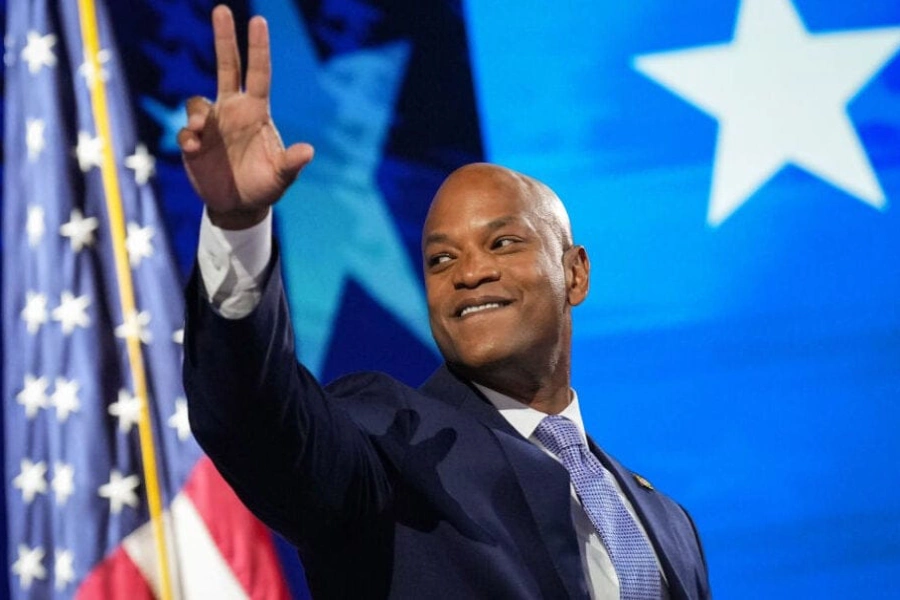
Political Philosophy: Federal-State Collaboration
This confrontation illustrates Wes Moore’s broader political philosophy on federal-state relations. A former Rhodes Scholar, combat veteran, and author, Wes Moore advocates collaboration between federal and local authorities rather than top-down mandates.
He emphasizes that partnership and local expertise are essential for effective governance. While aligned with broader Democratic perspectives on federalism, his stance transcends partisan politics and reinforces constitutional principles.
Legal Implications of the Standoff
The Moore-Trump conflict raises critical legal questions:
Insurrection Act
If invoked, the Insurrection Act could authorize federal military intervention, but typically only in extreme circumstances. Wes Moore maintains such conditions do not exist in Baltimore, and any intervention could be deemed an abuse of presidential power.
Tenth Amendment
By invoking the Tenth Amendment, Wes Moore emphasizes state sovereignty, potentially leading to legal challenges if federal forces are deployed. Courts would assess whether intervention is constitutionally justified.
Federal Jurisdiction vs Local Authority
The dispute also raises questions about federal jurisdiction over local crime, which traditionally falls under state authority unless federal crimes or interstate commerce are involved.
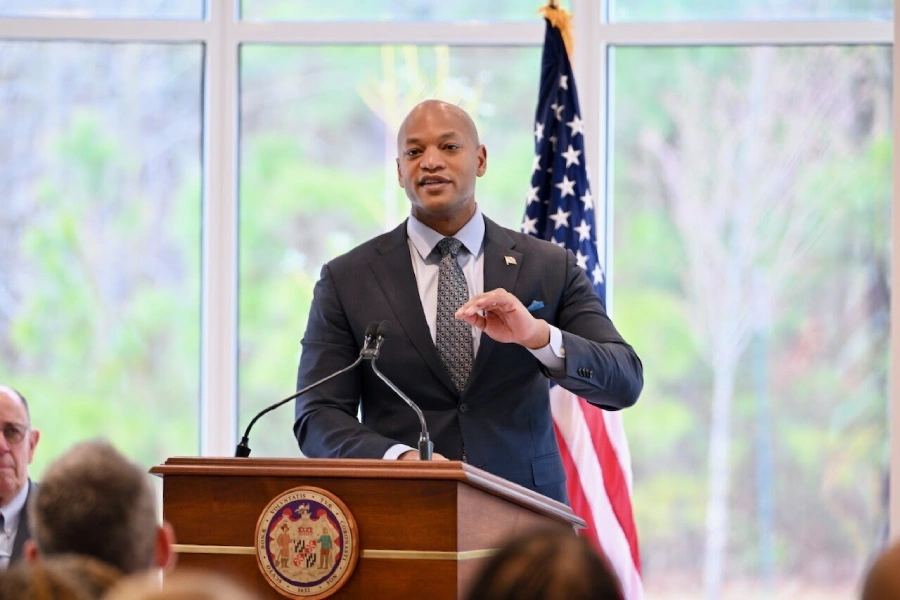
Public Opinion and Political Risks
Polling indicates a slight decline in Wes Moore’s approval ratings amid this confrontation, narrowing the gap between supporters and critics. Despite this, his stance against federal overreach is viewed by many as principled leadership, appealing to voters who value state rights and local governance.
Factors Influencing Approval
-
Economic conditions in Maryland
-
Progress on campaign promises
-
Handling of state-specific issues
-
National political climate
-
Media coverage of the Trump confrontation
Wes Moore’s team likely sees the constitutional stand as strengthening long-term political credibility.
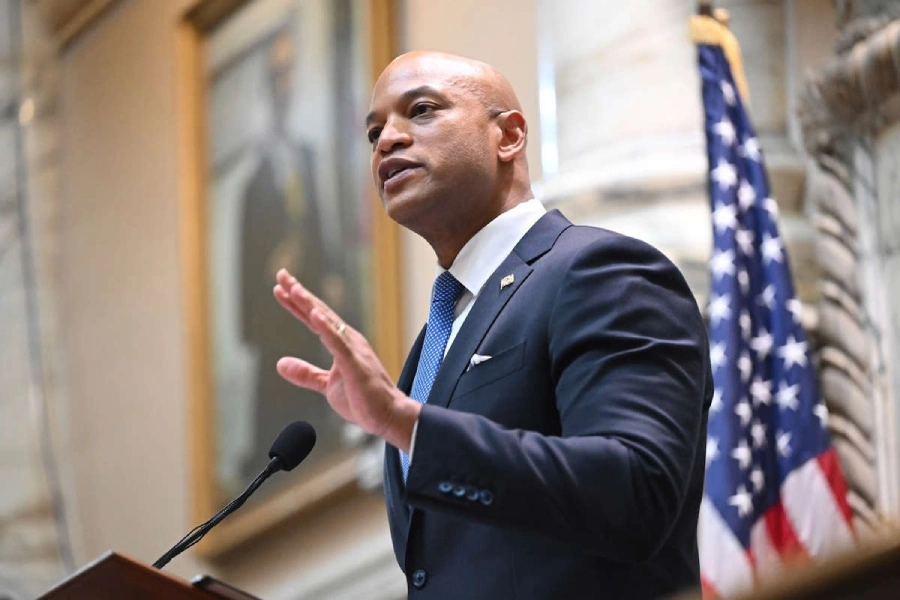
Strategy for Managing Federal-State Tensions
Wes Moore’s approach combines:
-
Constitutional Advocacy: Using law as a basis for resisting federal overreach
-
Collaborative Messaging: Emphasizing willingness to work with federal authorities under agreed terms
-
Local Expertise: Highlighting officials’ knowledge of community needs
-
Data-Driven Arguments: Using crime statistics to counter federal claims
-
Coalition Building: Aligning with other governors and local leaders for unified opposition
This strategy balances legal, political, and public perception considerations effectively.
Conclusion
The confrontation between Wes Moore and Trump is more than political; it embodies fundamental questions about American federalism. Moore’s principled defense of state authority over federal overreach reflects leadership that prioritizes legal precedent over convenience.
His actions could shape future federal-state relations, set legal precedents, and reinforce the importance of local governance. Regardless of immediate political consequences, Wes Moore has positioned himself as a key voice in defining the balance between federal power and state sovereignty.
FAQ
Q1: Can the President deploy the National Guard to Baltimore without Wes Moore’s consent?
A1: No. State governors control National Guard forces unless federalized under specific circumstances.
Q2: How has Wes Moore responded to Trump’s crime accusations?
A2: He rejected the claims, highlighting progress made through community programs and advocating collaboration over threats.
Q3: What legal authority does Wes Moore have?
A3: Full control over Maryland National Guard under state law; federal deployment under Insurrection Act could override state control but requires legal criteria.
Q4: Why cite the Tenth Amendment?
A4: It reserves police powers to states, making federal intervention in local crime constitutionally questionable without extreme circumstances.
Q5: How might this affect Wes Moore’s political future?
A5: It may elevate his national profile as a defender of state rights and constitutional principles, though political risks exist.
Q6: What precedent would federal intervention create?
A6: Overriding state opposition could set a precedent for federal intervention in other cities with resistant local authorities.

